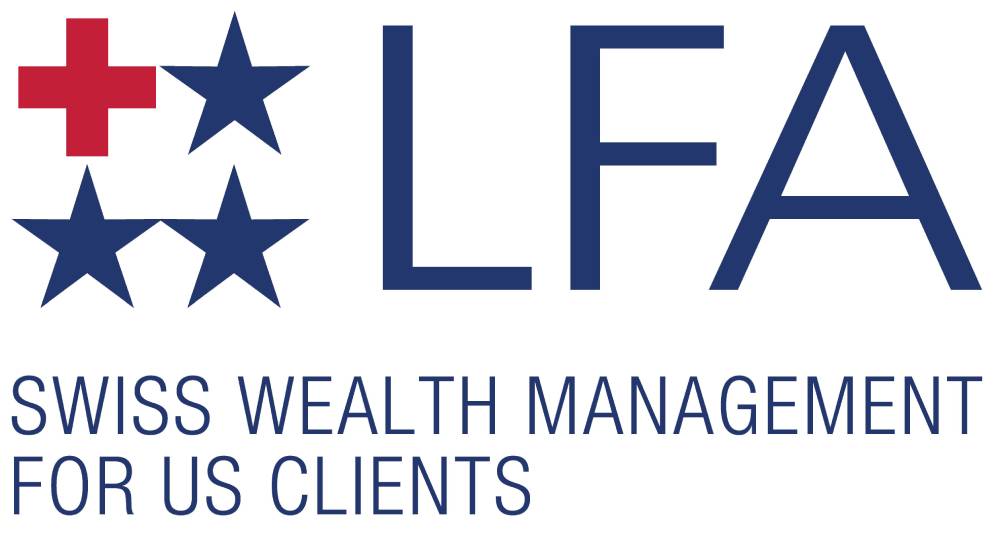
More high-net-worth individuals, couples, and families in the U.S. are looking beyond domestic markets to manage their financial assets. With concerns about national debt and instability around the globe, Europe, particularly Switzerland, has become a relevant investment destination for those seeking broader diversification and access to international strategies.
This movement isn’t about abandoning U.S. investments. It’s about expanding options, managing your risk on a more global scale, and building a more globally diversified financial strategy. For Americans with over $1 million of investable assets searching for more diversification, investing in Europe offers access to stable currencies, well-regulated banking systems, and wealth management approaches grounded in long-term capital preservation.
In the sections below, we’ll explore why more U.S. investors are considering Switzerland and the broader European market in 2025.
Chapter 1: Safeguarding Your Principle from Potential Erosion
Chapter 2: Selecting the Right Swiss Wealth Management Firm
Chapter 3: Swiss Accounts for Americans: Navigating the Regulatory Maze
Chapter 4: Global Wealth Management: The Appeal of Swiss Stability
Chapter 5: Investing With Swiss Francs
Chapter 6: Why Partner with LFA?
Safeguarding Your Principal From Potential Erosion
As a high-net-worth investor, preserving your capital is just as important as growing it. One of the biggest threats to long-term wealth is the gradual erosion of principal, often driven by factors such as inflation, currency fluctuations, and concentrated market exposures.
While the effects may not be immediately visible, they may significantly weaken your purchasing power and long-term financial stability.
U.S.-based inflation remains a concern, especially if you hold significant cash or dollar-denominated assets. As inflation rises, your money’s real value may decline, reducing your wealth’s purchasing power, which will buy fewer goods and services.
Many investors are exploring global strategies that include inflation-sensitive investments and broader currency exposure as part of a diversified approach aimed at mitigating inflation-related risks.
Currency hedging is one way to help manage the risk of dollar depreciation. By holding part of your portfolio in foreign currencies, such as the Swiss franc, may introduce a layer of protection that reduces exclusive exposure to the U.S. dollar. The Swiss franc, in particular, has a track record of relative stability and low inflation, making it a popular choice among more sophisticated investors looking to protect their wealth.
Incorporating hedging strategies and non-correlated international investments may help safeguard your principal from economic shifts and slow any adverse compounding effects of the securities markets.
Selecting the Right Swiss Wealth Management Firm
Choosing a wealth management firm in Switzerland isn’t just about finding a well-established bank; it’s about building a trusting relationship with a team of professionals who understand U.S. investors’ needs, the U.S. capital markets, and global financial options. Not all Swiss firms are equipped to serve American clients, and working with the wrong firm can create tax complexities, compliance issues, and potentially avoidable investment risks.
U.S.-based investors should look for a firm that:
- Specializes in working with American citizens
- Is registered with the Securities and Exchange Commission
- Offers SEC-compliant services based on years of experience
- Provides bilingual advisors who understand cross-border global management
- Has experience managing tax reporting obligations for U.S. clients
- Are financial fiduciaries obligated to offer unbiased financial advice
Swiss Accounts for Americans: Navigating the Regulatory Maze
The appeal of Swiss bank accounts for U.S. citizens remains strong, but regulatory oversight of their services has intensified over the past two decades. FATCA (Foreign Account Tax Compliance Act) and CRS (Common Reporting Standard) have introduced additional reporting requirements and complexities for Americans looking to open and maintain international accounts.
That doesn’t mean the option is off the table, but it does mean that if you are considering opening investment accounts in Switzerland, you will need to comply with various cross-border regulations.
Investing assets outside the U.S. requires careful planning, full compliance, and experienced guidance.
1. Not all Swiss banks or wealth management firms are equipped to serve U.S. citizens. Look for institutions that:
1. Accept U.S. clients and understand U.S. tax and reporting requirements
- Have experience with cross-border compliance (e.g., FATCA)
- Are appropriately registered with the SEC, if required
2. Complete Know-Your-Client (KYC) and Due Diligence documents: Swiss banks are highly regulated and require full disclosure before opening an account. You should be prepared to provide:
- Valid government-issued ID (e.g., passport)
- Proof of address (utility bill, tax document)
- Source of funds and wealth declaration
- U.S. tax identification number (TIN or SSN)
3. Comply with all U.S. and Swiss Regulatory Reporting: Americans with Swiss accounts must comply with:
- FATCA (Foreign Account Tax Compliance Act) reporting to the IRS
- FBAR (FinCEN Form 114) for foreign accounts exceeding $10,000
- Swiss banks will also report account activity to U.S. authorities, in accordance with FATCA agreements.
4. Set Investment Objectives and Risk Parameters: Work with your Swiss financial advisor to:
- Define goals (wealth accumulation, preservation, income)
- Choose investment strategies (multi-currency, global equity, alternatives)
- European investments vs. U.S.-compliant investment vehicles
5. Maintain Ongoing Communication and Annual Reviews
- Schedule regular check-ins with your Swiss-based financial management team
- Update your financial plan to reflect any relevant changes
- Adjust your exposure to financial risk as appropriate
- Confirm ongoing compliance with U.S. tax disclosure and reporting rules
6. Consult a Cross-Border Tax Advisor: To help avoid unintended tax consequences, work with a U.S. CPA or cross-border tax specialist who understands international investments and Swiss reporting requirements.
Global Wealth Management: The Appeal of Swiss Stability
Switzerland has long been associated with stability, neutrality, and services for sophisticated investors. Those attributes are more relevant than ever for American investors focused on global investment opportunities and wealth preservation.
Wealth management in Switzerland emphasizes long-term strategies, multi-currency investing, and results. Swiss advisors are well known for their conservative business practices and focus on risk-adjusted returns, which may appeal to U.S. investors seeking to balance growth with asset preservation.
Moreover, many wealth management firms in Switzerland offer global solutions that combine local expertise with access to international markets, private banking services, and customized portfolio management services.
Investing With Swiss Francs
The Swiss franc (CHF) is one of the world’s most stable currencies. Backed by a strong central bank, disciplined monetary policy, and political neutrality, the franc has historically been potential haven during periods of economic uncertainty.
The following are some of the more popular ways U.S.-based investors leverage Swiss francs in their portfolios:
1. Hedge Against U.S. Dollar Weakness: As noted earlier in this article, holding part of your portfolio in CHF-denominated currency may provide a hedge against U.S. dollar depreciation and inflation. This can potentially help protect the purchasing power of your wealth during periods of U.S. economic uncertainty.
2. Add Geographic and Currency Diversification: Investing in Swiss francs may help reduce currency concentration risk. Combined with exposure to Swiss and other European markets, it can create broader geographic diversification, an essential step in building a resilient global portfolio.
3. Tap Into Switzerland’s Conservative Financial Culture: Switzerland’s investment philosophy often emphasizes capital preservation, low-volatility strategies, and steady long-term growth. Investing in CHF-based accounts or products can align with strategies designed to help safeguard wealth across multiple generations of families.
4. Benefit from Political and Monetary Stability: The Swiss National Bank (SNB) is known for its disciplined monetary policy. During periods of global market turbulence, CHF-denominated assets have often retained more value than their USD counterparts, making them potentially attractive during periods of volatility.
5. Access CHF-Denominated Fixed Income, and Cash Products: Swiss franc bonds, cash accounts, and structured products may offer low-risk options for conservative investors looking to park capital outside the U.S. without sacrificing liquidity or oversight.
6. Protect your assets from the approximate $44.2 trillion in debt and long-term obligations across all levels of U.S. government entities.
Why Partner with LFA?
Partnering with LFA offers a distinct advantage for U.S.-based investors seeking greater exposure to European markets and potentially reduced reliance on the U.S. market. As a Swiss-based wealth management firm with deep expertise in cross-border strategies, LFA understands American investors’ regulatory, tax, and investment challenges when expanding their exposure to international markets.
We specialize in helping clients diversify their portfolios with Swiss franc-denominated assets, European equities, and global fixed-income opportunities, all while remaining fully compliant with U.S. reporting requirements.
LFA integrates Swiss financial principles with an international investment approach, offering customized strategies designed to support long-term preservation of capital and participation in global markets.
Our bilingual advisors have experience working with U.S. citizens and coordinate with cross-border tax professionals to meet the compliance requirements of U.S. regulatory agencies.
If you want to expand your European financial footprint with a trusted partner who understands dual planning and investment requirements, LFA provides the clarity, structure, and global access you need to confidently move forward.
Schedule a complimentary call with our team today.
